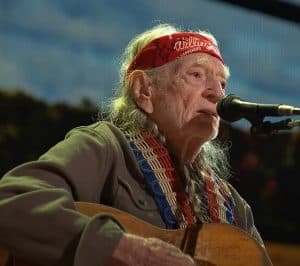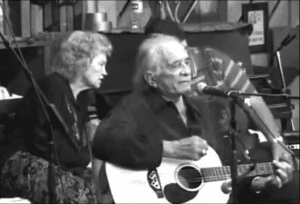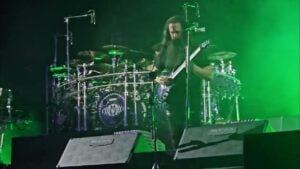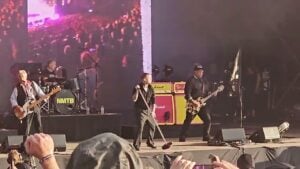There’s Only One Song That Makes Geddy Lee Cry
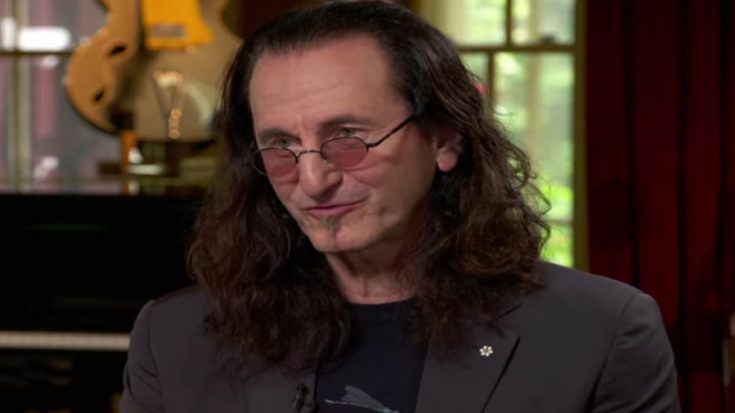
via Jeff Lee / YouTube
Geddy Lee, known as the vocalist, bassist, and adept keyboardist of the prog rock legends Rush, boasts an expansive taste in music. And his musical awakening was brought on by an exposure to one particular British band.
The legendary bassist has consistently expressed his admiration for the English prog-rock trailblazers, Yes, who played a substantial role in shaping Rush’s early years. Notably, Jon Anderson, the original frontman of the group, holds the distinction of being Lee’s all-time favorite vocalist.
Despite the assortment of singers Yes has seen throughout their history, Lee contends that all others fade in comparison to the band’s first figurehead. And when asked what song that makes him cry, he unsurprisingly mentioned a classic masterpiece his favorite band.
“”And You And I” by Yes is so beautiful, especially when I listen to it now. The combination of nostalgia and pure sonic beauty is pretty moving.”
Geddy Lee’s love for Yes
“They still are the only band I’ve lined up all night to see!”
Lee excitedly recounted to Rolling Stone the first time Yes came to Toronto when he, bandmate and guitarist Alex Lifeson, and another friend lined up for a long time to get tickets.
View this post on Instagram
“We ended up with second-row seats. I’ll never forget that. We drove out. I think it was that same week, they were also playing in Kitchener, Ontario, and saw them out there as well. They still are the only band I’ve lined up all night to see!”
While he loved the entire band, Lee had always had a special place in his heart for Anderson. In the 2020 interview with Classic Rock where he revealed how “And You And I” made him weep, the Rush frontman also explained why he loved Yes’ original vocalist.
“Jon Anderson had such a clear, beautiful voice that could be rock when it needed to be and soulful when it needed to be. As a young aspiring musician, I wanted to sing like that.”
Watch Jon Anderson, Geddy Lee and Trevor Rabin Perform with #Yes Friday Night https://t.co/pSyMx3bN0c @yesofficial #geddylee pic.twitter.com/5fwkElT0fz
— Guitar World (@GuitarWorld) April 10, 2017
Decades after the peak of his fandom, Lee had the privilege of sharing the stage with Anderson and Yes during their induction into the Rock and Roll Hall of Fame in 2017. This experience, however, carried a sense of bittersweetness for Lee, as he was stepping in on bass for the late Chris Squire. Lee was also a die-hard fan of Squire.
Lee reflected, “I really did love playing that song with them. It was bittersweet for me, because Chris Squire was such a huge hero to me. And the fact that he wasn’t there was a vacuum that no one can fill properly.”
Chris Squire’s influence on Rush
Lee shared how it felt such an honor to play alongside his heroes in the induction ceremony: “It was fairly surreal to me, when I was asked to [play “Roundabout” with Yes at the 2017 Rock and Roll Hall of Fame induction], especially that song, which was such an important song, not only for me as a bass player, but also, there are very few progressive rock songs that have been such important hit singles, too.”
In this Rolling Stone interview, Lee also remembered how he discovered Yes and how he was blown away by Squire’s bass.
View this post on Instagram
“A friend of mine and I, we used to skip school all the time when we were in junior high school, and we would go to his house. And we were both just nuts about music, and he would turn me on to a lot of different things that I’d never heard, a lot of progressive-rock bands that I didn’t know of. So one day, we skipped class and went to his house, and he put on this record. It was Yes, Time and a Word. And I was just blown away by the sound of Chris Squire’s bass.”
Although formed in 1968, Lee and his band would experience a number of lineup changes before coming up with their definitive three-piece formation that would achieve success. After playing covers of Cream, Jimi Hendrix, and John Mayall, the band would slowly transition to more complex styles.
This was reflected in their initial self-named outing in 1974, which critics called “highly derivative of Led Zeppelin”. With the departure of original drummer and founding drummer John Rutsey after their debut album, Rush found magic in the person of Neil Peart.
View this post on Instagram
Apart from being their drummer, Peart would also assume the role of lyricist as Rush absorbed influences from Yes and Pink Floyd, fully transitioning to the progressive rock style that they were known for.
Their second album Fly By Night would achieve the success that will propel them to rock superstar until the 80s.








